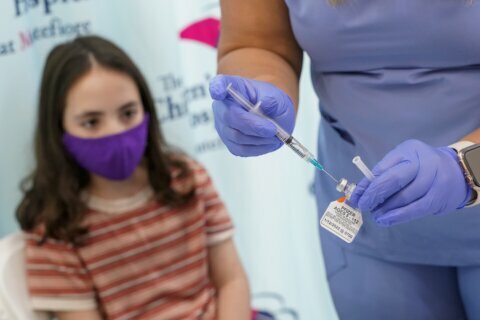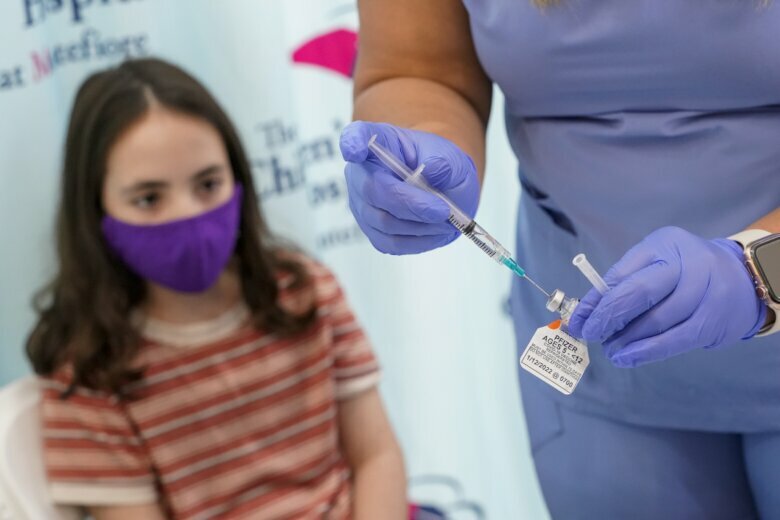
Bethesda, Maryland-based researchers at the National Institutes of Health have launched a long-term study that seeks to shed light on the lasting impacts of COVID-19 infection on children.
The NIH-supported study will track up to 1,000 children and young adults from birth to 21 years old who have previously tested positive for the coronavirus, evaluating their physical and mental health for three years to get a better a better idea of the long-term consequences of catching the disease.
“Although we know that children are vulnerable to COVID-19, we still do not have a clear picture of how COVID-19 affects them in the long term,” Dr. Anthony Fauci, director of the National Institute of Allergy and Infectious Diseases and the White House’s chief medical adviser, said in a news release.
“Our investigations into the pediatric population will deepen our understanding of the public health impact that the pandemic has had and will continue to have in the months and years to come.”
Data in the early days of the pandemic suggested youth were less vulnerable to serious illness, but the thinking has since evolved.
While Pfizer’s new pediatric vaccine extends to kids the same protection against serious illness afforded to adults, the study’s undertakers note that around six million American children tested positive for the disease over the last year with no immune defense to prevent short- and long-term symptoms.
Children and adolescents with COVID-19 also are at risk of a rare but potentially deadly complication called multisystem inflammatory syndrome, or MIS-C — but doctors still don’t know exactly how COVID-19 triggers the condition or why some kids develop it while most don’t.
Over 5,500 cases of MIS-C have been documented since mid-May 2020, including at least 200 throughout Virginia, Maryland and D.C.
The study will consider genetics and immunological history in its search for risk factors that make a serious outcome to COVID-19 infection more likely in children.
The NIH Clinical Center and D.C.’s Children’s National Hospital are recruiting kids for the study with the consent of their parents or guardians. Children may be eligible if they have previously tested positive for COVID infection — regardless of whether or not they showed symptoms.
Members of their households without a history of infection might also be asked to enroll as part of a control group.
More information on how to enroll is available online. Research is expected to take around six years to complete.
- Sign up for WTOP alerts
- Latest coronavirus test results in DC, Maryland and Virginia
- Latest vaccination numbers in DC, Maryland and Virginia
Looking for more information? D.C., Maryland and Virginia are each releasing more data every day. Visit their official sites here: Virginia | Maryland | D.C.









